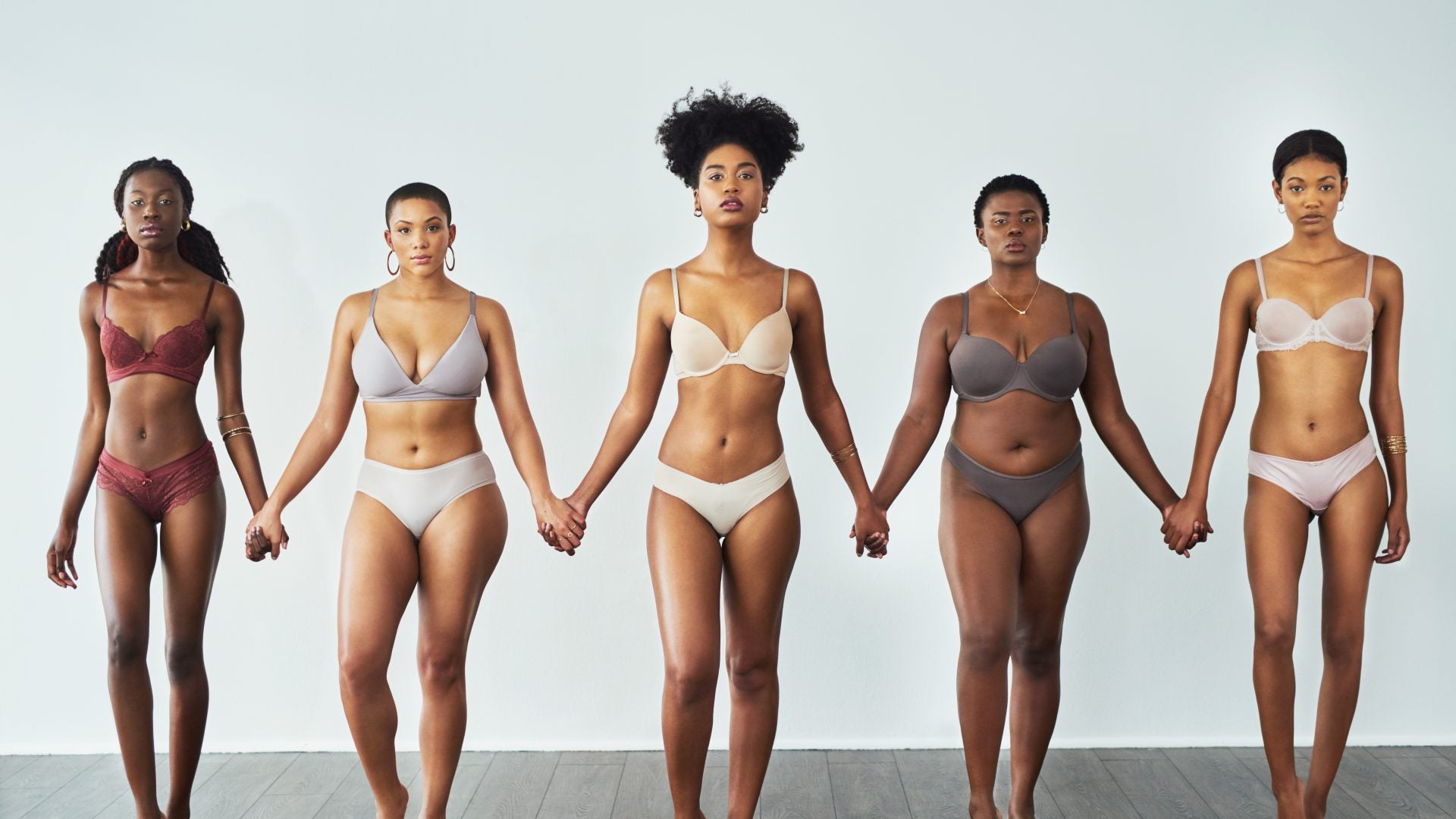
Can we go ahead and agree on one thing? Body positivity does not mean promoting obesity or an unhealthy lifestyle. It is simply the revolutionary act of embracing the frame we’re in—right now. This mind-set is not only for those of us who wear cellulite like a badge of honor. It’s for everyone. Every body.
Now that we’re clear on that, I’d like to address an issue that has caused an uproar: the proliferation of size-inclusive mannequins. I’m shocked that we’re just now starting to see mannequins that reflect real women’s bodies, but I’m also glad the fashion world has finally realized that women fit clothes outside the constraints of a sample size. Seriously, the average size of a woman has long been above a 2! But I don’t think I need to belabor that point.
What folks seem to need clarity on is representation. Why is it that people freak out when diverse body types are displayed? For example, when Gabourey Sidibe’s Empire character, Becky, consummated her loving relationship, many complained that it was utterly disgusting to see a man make love to a big Black woman. Whether we want to admit it or not, mannequins, models and actors help shape our perceptions of ourselves. I’d like to believe the days of women wishing they were skinny are over. Some argue that there’s a thin line between being size-inclusive and promoting obesity. I say it’s time we make that line thicker.
When Nike unveiled its size-inclusive mannequins and announced that its apparel would now include up to women’s size 32, many of us rejoiced, but there was a chorus of naysayers who insisted that this was just unacceptable. Now, correct me if I am wrong, but those who hate fat people generally snipe that a fat person should do something not to be fat, right?
One way to fulfill that objective is to work out, right? Still with me? So that means Nike offering workout clothes for fat people will make it easier for them to exercise, thus supporting good health goals. This is a win for everyone, so why object to a sports brand promoting workout sizes for larger bodies? (Think about this: Serena Williams is what really about. Arguably the greatest athlete of all time, she has never been a sample size.) And not only is Nike selling workout clothes for larger bodies, but it’s also promoting gear for people with disabilities.







Rihanna also knows why representation matters. When her Fenty fashion brand showcased mannequins with larger busts and waistlines, it was hard not to stan. Sis is constantly showing us that we all can pursue being as fly as she is.
Having an array of humanity on display in fashion, fitness and entertainment shouldn’t be hated, protested and nitpicked to death. We need to erase the idea that there is only one acceptable image—once and for all.
End Body Shaming.






